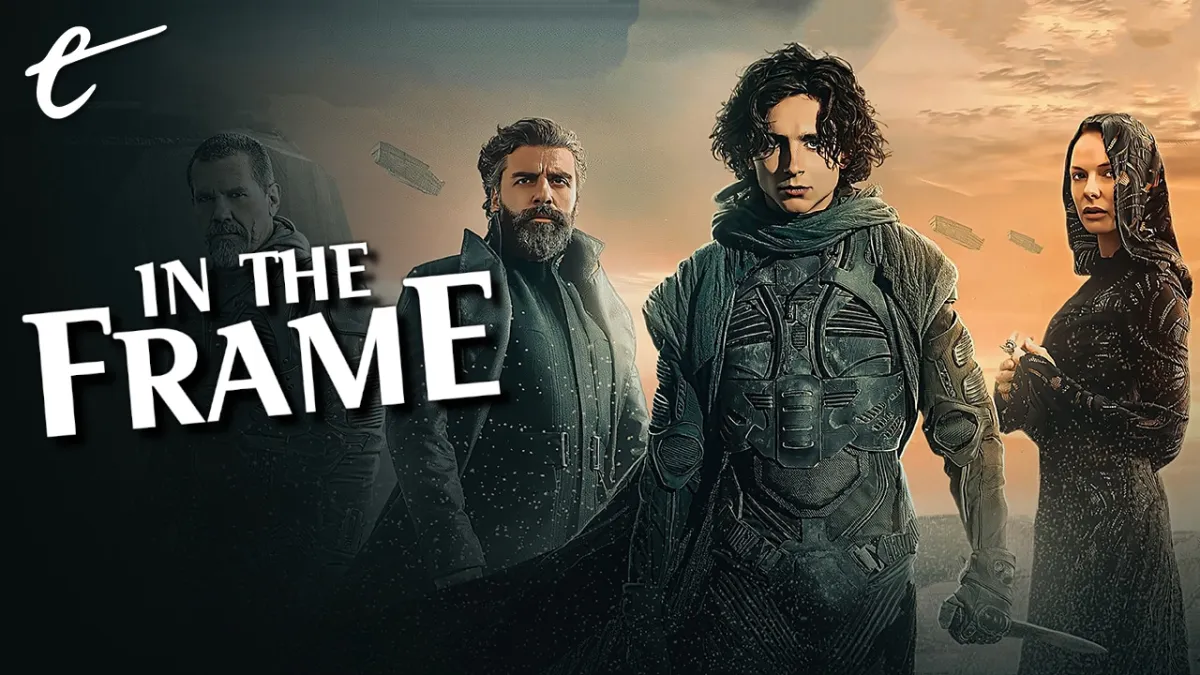Last week, the opening 10 minutes of Denis Villeneuve’s Dune were screened for select critics as a way of building hype for the upcoming science fiction epic. However, the most interesting revelation from this screening was the reported confirmation of the movie’s official title: Dune: Part One.
This is not entirely a surprise. After all, Frank Herbert’s Dune is a very long book. David Lynch’s earlier cinematic adaptation had to take extreme liberties to compress it into a single feature. The Sci-Fi Channel managed a more faithful adaptation by turning it into a six-hour miniseries. As early as May 2018, Villeneuve was talking about his plans for “both films.” In July 2018, Herbert’s son Brian confirmed that the upcoming cinematic adaptation would cover “approximately half of the novel.”
Still, it is a bold move to open a feature film adaptation of a beloved science fiction novel by assuring audiences that their cinema ticket will only cover half of the material in question. It is also a confident move, given the various factors in play that seem weighted against the success of Dune and the fact that the second film has yet to be officially greenlit. There is every possibility that Dune: Part One might end on a cliffhanger that is never resolved on screen.
Traditionally, feature films have largely been sold as self-contained narrative entities. There have always been sequels and franchises, but most major motion pictures have been expected to work on their own terms. It was possible for audiences to enjoy Roger Moore as James Bond in For Your Eyes Only even if they had never seen Moonraker. Many of the people who watched The Silence of the Lambs had no idea it was an adaptation of a second book in a series.

It is not unheard for movies to be sold as “parts” of a larger story. However, these “part”-derived subtitles have historically been added to sequels rather than front-loaded on the original film. Even then, they weren’t always in vogue. When producing a sequel to The Godfather, director Francis Ford Coppola had to fight to name it The Godfather Part II. He recalls Paramount protesting, “Oh, if you call it The Godfather Part II, people will think it’s the second half of the film they already saw.”
More recently, there has been a resurgence in splitting established source material into parts as a way of extending the potential profitability of limited source material. The Harry Potter franchise is a great example of this, splitting the final book in the franchise into two halves. It paid off. Harry Potter and the Deathly Hallows – Part 2 remains the highest-grossing film in the franchise. It is also the only entry in the series remaining on the Internet Movie Database’s Top 250 Movies of All Time.
Given the success that Harry Potter and the Deathly Hallows – Part 2 enjoyed, it makes sense that splitting the final book became a standard move for young adult adaptations. Both the Twilight and Hunger Games franchises attempted to squeeze more money out of the series by building to a two-part finale. Even Disney had taken note, initially announcing the culmination of Phase III of the Marvel Cinematic Universe as Avengers: Infinity War Part I and Avengers: Infinity War Part II.
The results weren’t always as successful as they had been with the Harry Potter franchise. The two halves of Breaking Dawn collectively grossed more than any individual film in the Twilight franchise but individually grossed less than either of the two prior films. Despite the highest budget in the series, The Hunger Games: Mockingjay – Part 2 grossed less than any prior entry in the franchise both domestically and globally. Despite its massive success, it was perceived as a “disappointment.”

In April 2014, Lionsgate committed to splitting the final book of the Allegiant series into two films, but the fourth film was then pushed from theaters to television and then that television show was quietly dropped. By August 2014, director Wes Ball was promising that he wouldn’t split the Maze Runner movie into two parts. There were still notable exceptions, with Andy Muschietti splitting his adaptation of It into two halves, but the first half far outperformed and outgrossed the second.
Even then, It consciously avoided selling itself as the first part of a larger movie, only revealing the subtitle “Chapter One” in the closing title card. Along those lines, in 2016, Disney announced that Avengers: Infinity War was now a single movie and the Russo Brothers confirmed that it would be followed by a “very different” movie with a distinct title. At the press screening I attended, critics were explicitly requested not to reveal that Infinity War ended on a cliffhanger.
As such, it is interesting to see Dune explicitly and aggressively position itself as the first part of a larger story. It seems like tempting fate, particularly given the track records of all parties involved. As excited as one might be about Dune, the odds seem heavily stacked against the possibility of Dune: Part Two. With a reported budget of $165M, the film needs a box office return to not only justify its own cost but also encourage investment in a sequel.
There are countless “sure thing” sequels that have been derailed by underwhelming box office performances. Warner Bros. still claimed to be pushing ahead with a sequel to Green Lantern in August 2011, months after the first film’s box office belly flop, but the film never materialized. To cite an example more relevant to Dune, director Andrew Stanton originally planned an entire trilogy of John Carter adaptations before the first film’s financial failure led Disney to let the rights lapse.

The odds stack further against Dune. The earlier adaptation was a box office disappointment. While director Denis Villeneuve has a strong and vocal following among cinephiles and was named “Filmmaker of the Decade” by the Hollywood Critics Association, his previous film was a massive commercial flop that killed a potential franchise. Blade Runner 2049 feels like a test case for Dune, another visit to a failed cult science fiction classic from the 1980s. The prognosis is not good.
There are other concerns. In December 2020, it was announced that Warner Bros.’ entire theatrical slate would premiere simultaneously on HBO Max at no extra cost for subscribers. Theatrical ticket sales for Dune will compete against watching it free with a monthly subscription to HBO Max. Villeneuve lamented, “Warner Bros.’ decision means Dune won’t have the chance to perform financially in order to be viable and piracy will ultimately triumph. Warner Bros. might just have killed the Dune franchise.”
The decision by corporate parent AT&T to send these films to HBO Max has been an unmitigated disaster. Initial estimates suggest that the plan would cost Warner Bros. at least $1.2B in revenue. The company has already begun walking the deal back, signing an agreement with Regal Cinemas to restore the theatrical window in 2022. There is evidence from competitors like Disney that earnings from day-and-date streaming-and-theatrical releases cannot compare with the theatrical model.
The fallout from the deal played some role in AT&T’s recent decision to divest itself of its WarnerMedia assets, observers describing its stewardship of the studio as “another failed moment in the long history of corporate outsiders trying to remake the entertainment business.” The architect of the HBO Max streaming deal, Jason Kilar, immediately began negotiating his departure once news of the unloading came through. This might not be the best time to bet on Dune: Part Two.

The title Dune: Part One might also allude to other, broader shifts within the media landscape. One of the more interesting and challenging trends in recent years has been the blurring of the boundary between film and television. It could be argued that the films in the Marvel Cinematic Universe are just “the world’s biggest television show.” The highest-grossing movie of last year, Demon Slayer: Mugen Train, was effectively a bridging arc between seasons of an anime television show.
There is an argument that changes in the media landscape mean that most of the projects that would have been mid-budget feature films 20 years ago are now prestige television shows. Game of Thrones demonstrated that television could compete with cinema in terms of scale and spectacle as a home of literary adaptations. While Frank Herbert’s Dune is being adapted to the big screen, this autumn will see a streaming adaptation of Isaac Asimov’s Foundation for Apple TV+.
Perhaps the Part One label on the upcoming theatrical release of Dune is simply an acknowledgement of how porous the borders between film and television truly are. Perhaps it is no longer expected that a film serves as a single self-contained unit of narrative, but instead can exist as the first installment of a weird blockbuster miniseries where the production of its conclusion is dependent on the first installment’s box office results.
Then again, Dune has always been a story about the risk inherent in faith and belief. The title might just be an expression of that.





